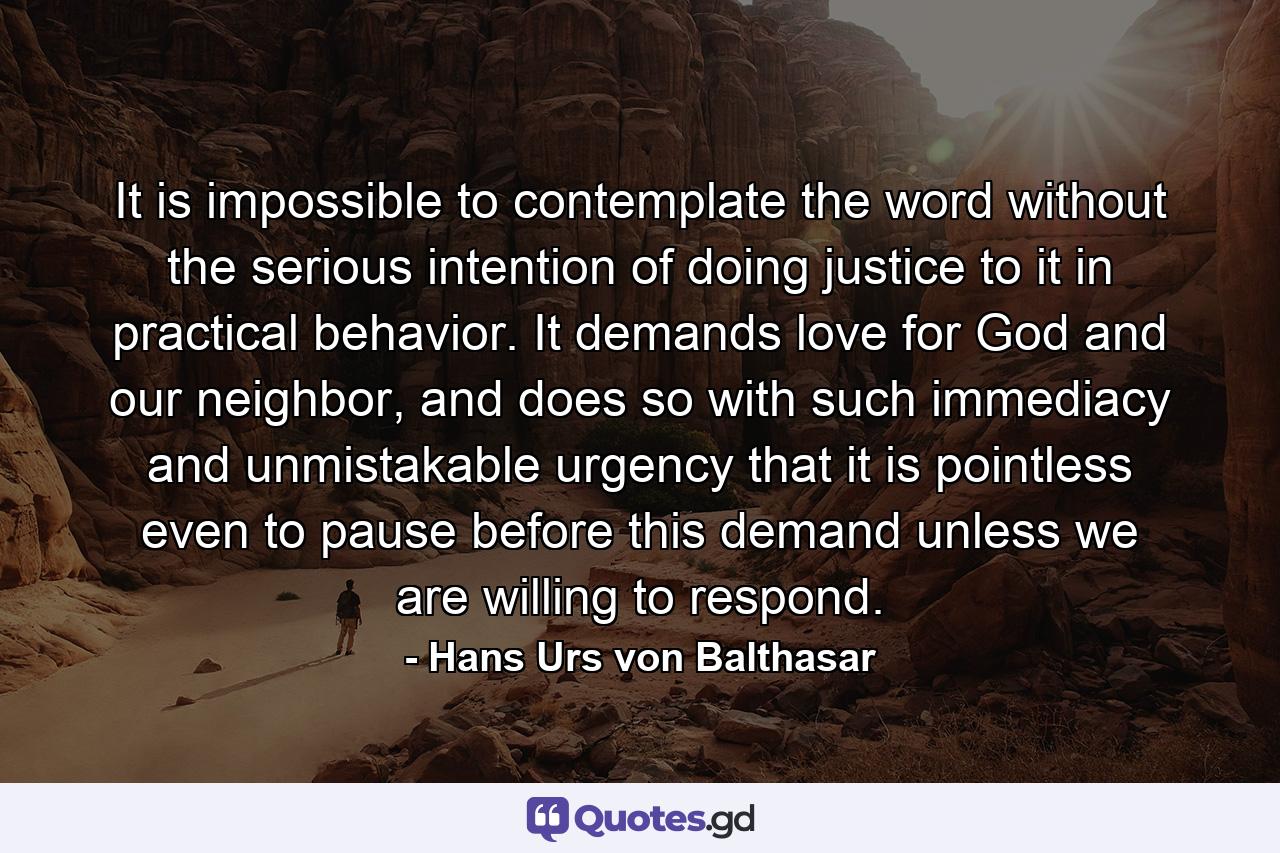Nevertheless, in a passage that is very often commented upon because it summarizes the entire salvific economy of faith, the Apostle calls Christ the 'pioneer and perfecter of our faith' (Heb. 12:2), because he has to accomplish the same act as the Christian, only in the opposite direction, as it were. Whereas by venturing to let go of everything the Christian takes a stand beyond finitude and comes into the limitlessness of God, Christ, in order to make this act possible and to be its source, has dared to emerge from the infinitude of the 'form of God' and 'did not think equality with God a thing to be grasped,' has dared to set out into the limitation and emptiness of time. This involved a transcendence and a boundary crossing no less fundamental than that of the Christian, and Christ undertook it so as to entrust himself henceforth within time, with no guarantee or mitigation from eternity, to the Father's will, which is always given to him in the present moment.


